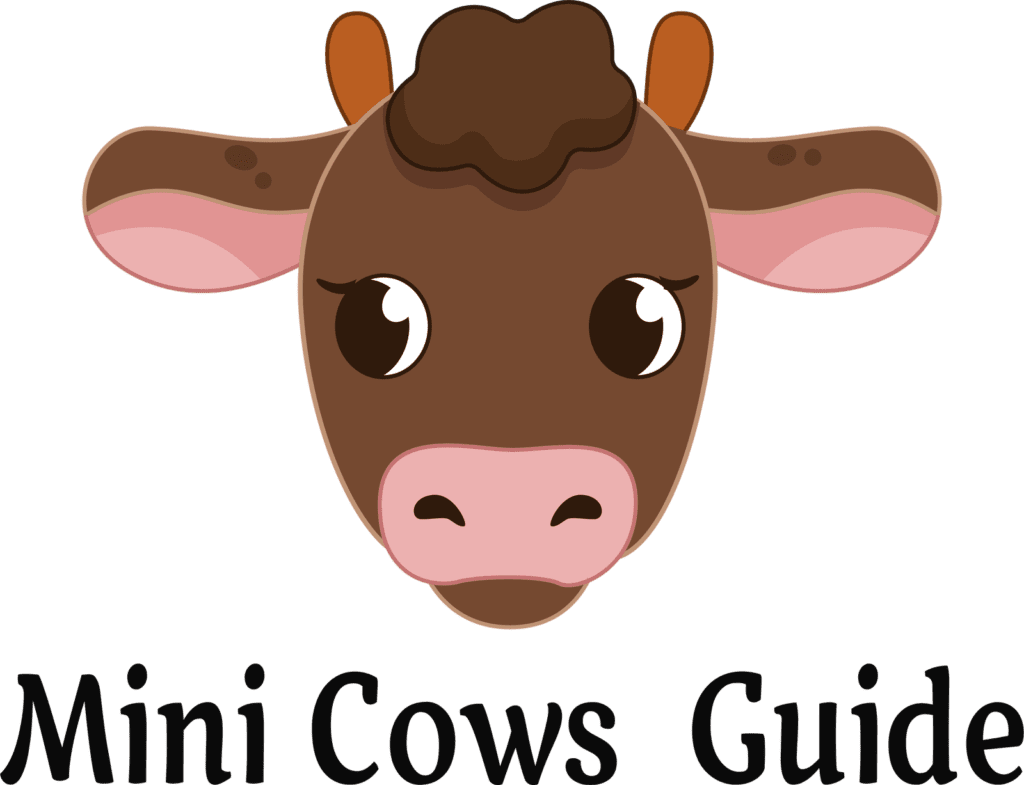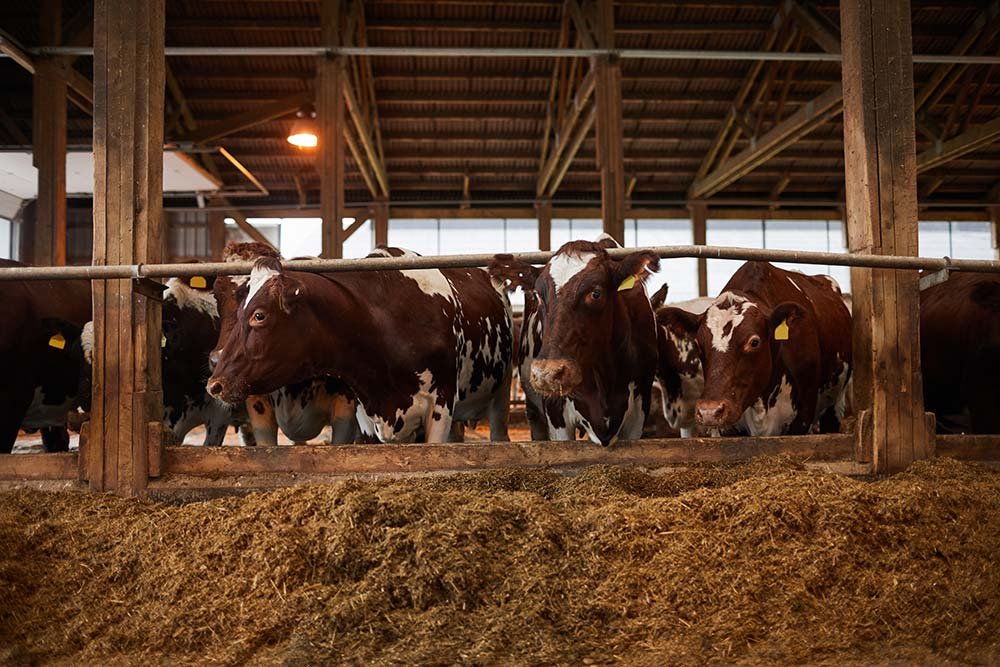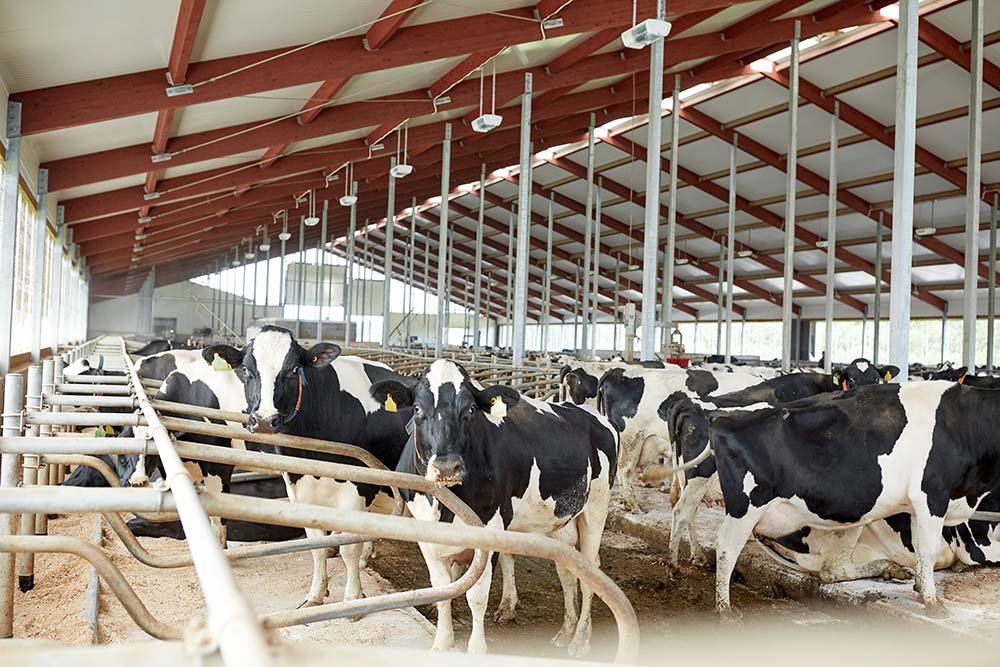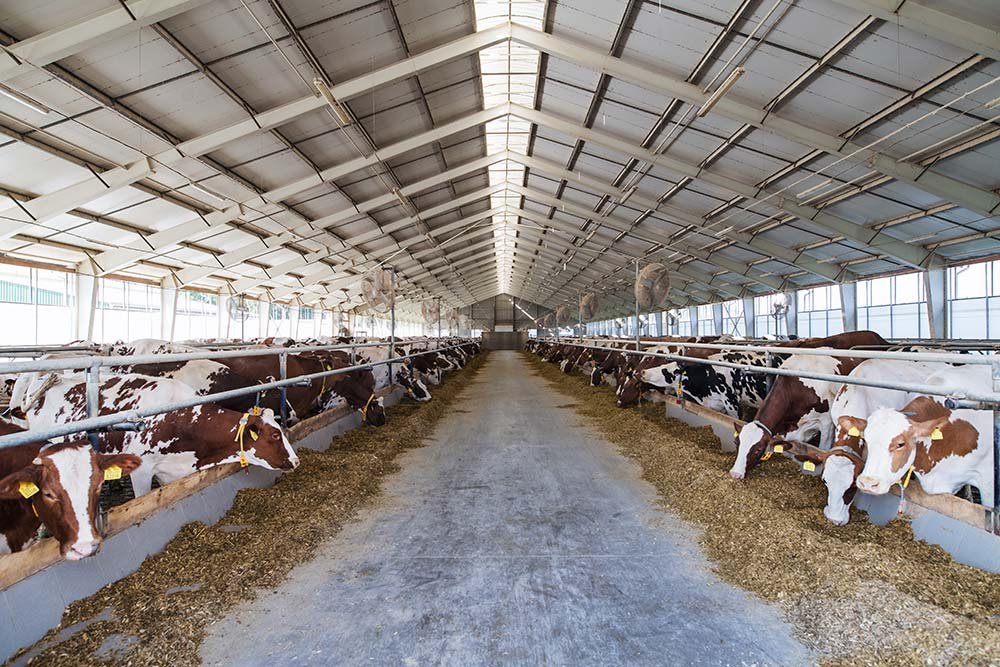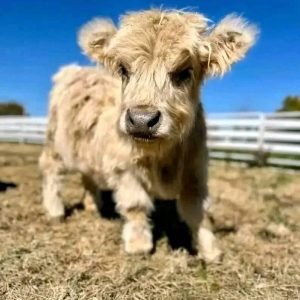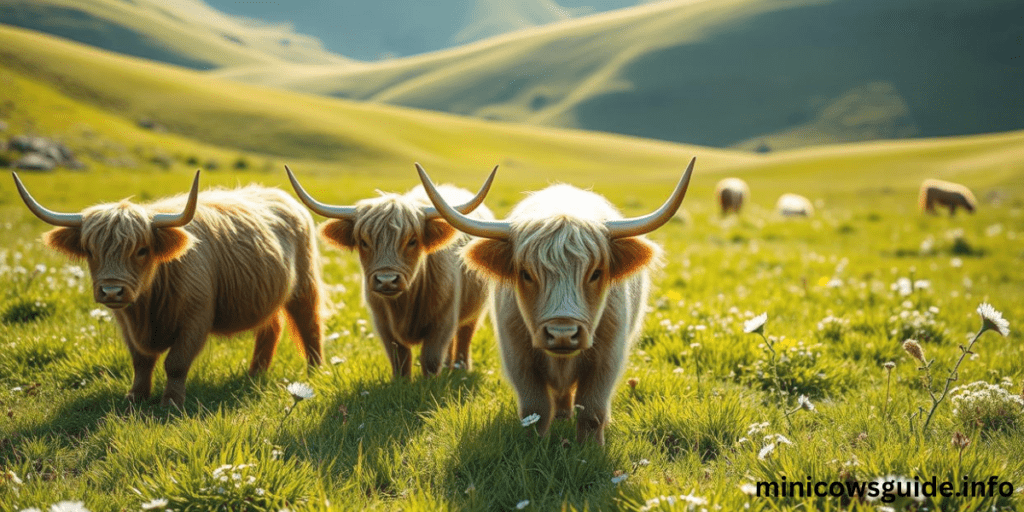Mini cows, also known as miniature cattle, are selectively bred as smaller versions of traditional cattle breeds such as Angus, Hereford, or Holstein. These pint-sized bovines typically stand around 36 to 42 inches tall at the shoulder and weigh significantly less than their full-sized counterparts. Mini cows are gaining popularity as pets due to their manageable size, docile temperament, and lower maintenance requirements compared to larger livestock. They are suitable for small acreages and can be kept as companions or for small-scale milk or meat production. Their compact size makes them appealing to urban and suburban dwellers seeking unique and manageable pets.
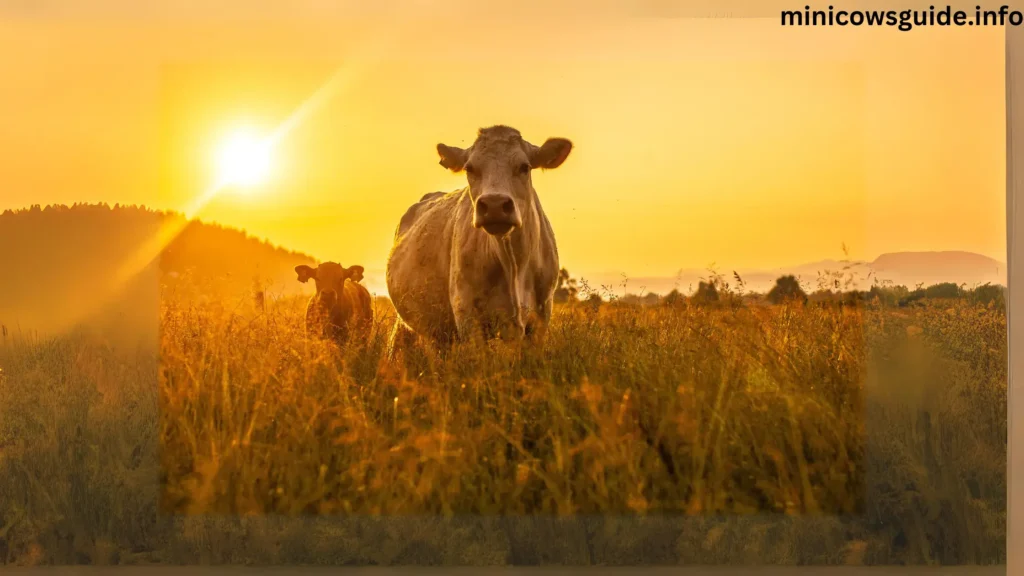
With their rising popularity it raises an important question “Are mini cows healthy?”
Yes, mini cows are generally healthy animals when properly cared for. Like any livestock, their health depends on factors such as genetics, diet, environment, and veterinary care. Responsible breeding practices and regular health check-ups can contribute to maintaining the well-being of mini cows.
1:Health Benefits of Mini Cows
Naturally smaller size can reduce strain on joints.
Yes, the naturally smaller size of mini cows can indeed reduce strain on their joints compared to larger cattle breeds. This can contribute to their overall health and well-being, as they are less prone to certain musculoskeletal issues commonly associated with larger livestock. Additionally, their compact size may make it easier for them to move around and navigate their environment comfortably.
Potential for lower food intake compared to full-sized cows.
Certainly, the smaller size of mini cows generally means they require less food compared to full-sized cows. This can result in lower feeding costs and less demand for pasture or grazing space. However, it’s important to ensure that mini cows still receive a balanced diet appropriate for their size and nutritional needs to maintain their health and well-being. Proper nutrition management is key to ensuring they receive adequate nutrients despite their reduced food intake.
Can be a source of companionship and emotional well-being.
Indeed, mini cows can serve as a source of companionship and contribute to the emotional well-being of their owners. Their gentle demeanor and affectionate nature make them excellent companions, providing comfort and companionship similar to other domestic pets. The act of caring for and interacting with mini cows can also promote mental well-being by reducing stress and fostering a sense of connection with nature. Additionally, the unique bond formed between humans and these diminutive bovines can bring joy and fulfillment to their owners’ lives.
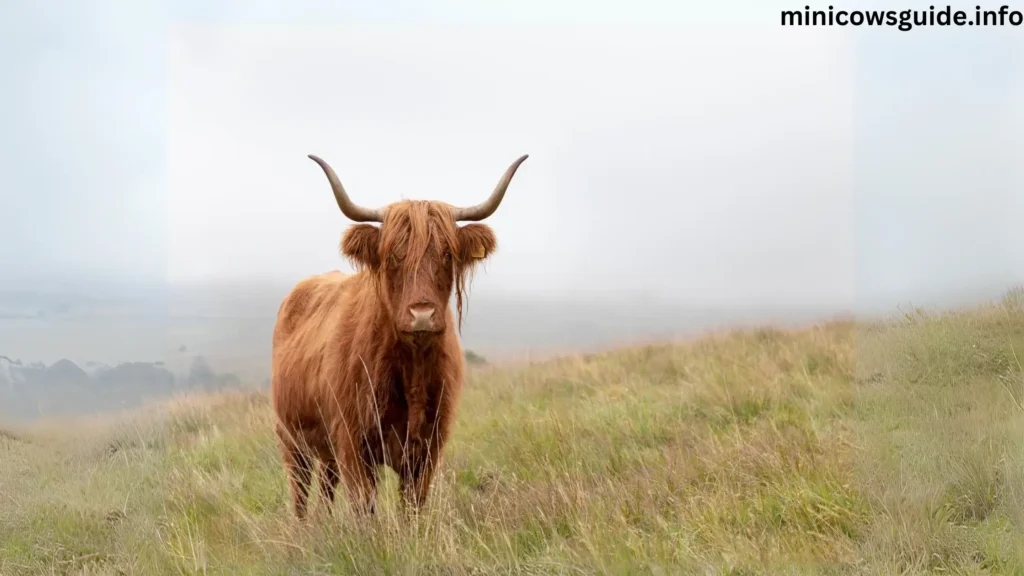
2:Potential Health Concerns of Mini Cows
Breeding Practices:
Achondroplasia is a genetic condition characterized by abnormal bone growth, leading to dwarfism in animals. In mini cows, this condition can result in the smaller stature that breeders aim for. However, achondroplasia can also lead to various health problems in affected animals.
One of the main concerns with achondroplasia in mini cows is skeletal abnormalities. The abnormal bone growth can lead to skeletal deformities such as shortened limbs, bowed legs, or abnormal spinal curvature. These skeletal issues may cause discomfort, and mobility problems, and predispose affected animals to joint problems and arthritis.
Furthermore, achondroplasia can also affect other body systems. For instance, respiratory problems may arise due to constricted airways resulting from skeletal abnormalities. Additionally, digestive issues may occur, as the smaller size of the digestive tract may not function optimally, leading to potential issues with digestion and nutrient absorption.
Breeding for miniaturization in cows often involves careful selection to minimize the occurrence of achondroplasia and associated health problems. Responsible breeders aim to mitigate the risks by selecting animals with minimal health complications related to dwarfism. However, owners of mini cows must be aware of the potential health implications associated with achondroplasia and provide appropriate care, including regular veterinary check-ups and monitoring for any signs of discomfort or health issues.
Stunting Growth Practices
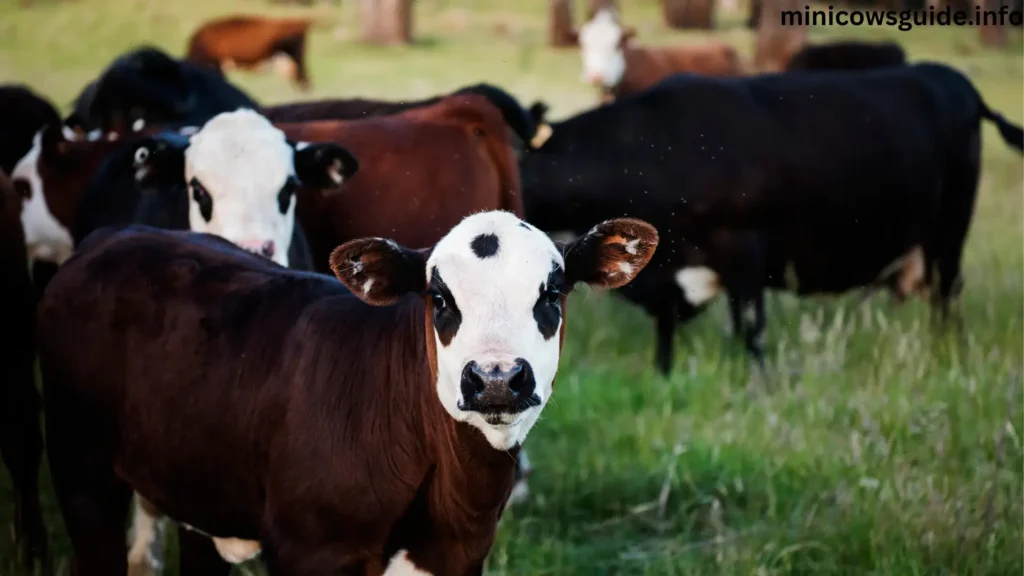
Some breeders may attempt to stunt the growth of mini cows to achieve a smaller size, often for aesthetic or economic reasons. However, artificially stunting growth in cows can lead to a host of health issues and ethical concerns.
One method used to stunt growth in mini cows is through restricted feeding. Limiting the amount of food provided to a growing animal can inhibit normal growth and development. This can result in skeletal abnormalities, such as underdeveloped bones or weakened joints, as well as deficiencies in essential nutrients necessary for overall health.
Another approach is through the use of hormonal treatments or supplements. Hormones such as growth hormones or steroids may be administered to alter the natural growth patterns of the animal, artificially halting growth. However, this can lead to hormonal imbalances, metabolic disorders, and other health complications.
Additionally, selective breeding for extremely small sizes without regard for genetic health can result in animals with a range of health issues. Genetic abnormalities, such as achondroplasia mentioned earlier, may be more prevalent in animals bred solely for miniature size.
Furthermore, stunting the growth of mini cows can have ethical implications, as it can lead to chronic pain, discomfort, and a decreased quality of life for the animals.
Difficulty giving birth due to small size.
Indeed, one significant health concern associated with mini cows is the potential difficulty of giving birth due to their smaller size. This issue, known as dystocia or difficult calving, can arise when the calf is too large relative to the cow’s pelvic size or when the cow lacks the muscular strength to deliver the calf.
In mini cows, the smaller pelvic dimensions and reduced muscular strength compared to larger breeds can increase the likelihood of dystocia during calving. This can lead to complications such as prolonged labor, fetal distress, or injury to both the cow and the calf. In severe cases, assistance from a veterinarian may be required to ensure a safe delivery.
To mitigate the risk of dystocia in mini cows, responsible breeding practices involve selecting animals with adequate pelvic structure and muscular development to support successful calving. Additionally, careful management during pregnancy and calving, including proper nutrition, regular monitoring, and timely intervention if needed, can help reduce the likelihood of complications.
Potential for injuries due to smaller stature.
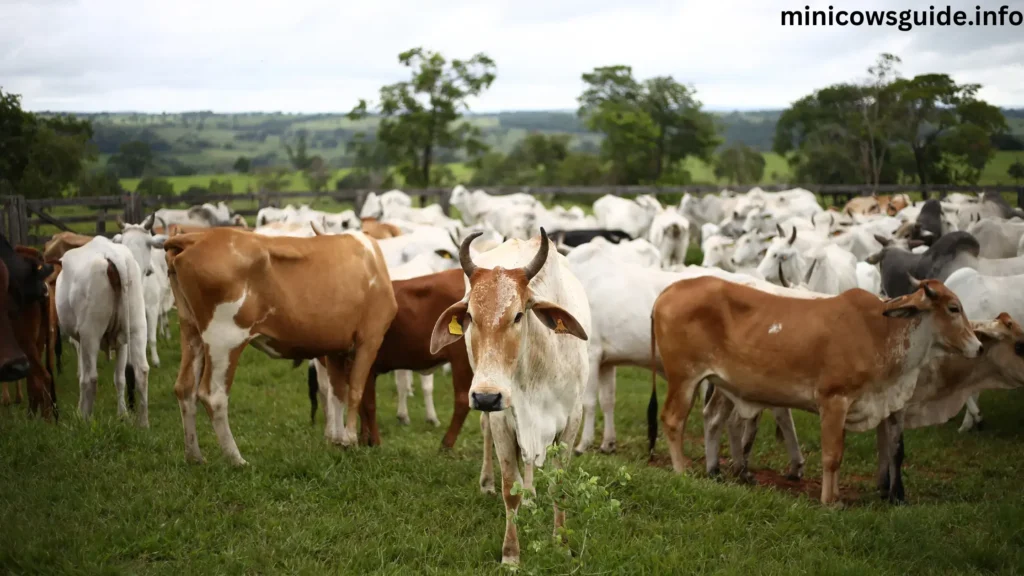
The smaller stature of mini cows can indeed increase their susceptibility to certain types of injuries. Due to their compact size, they may be more vulnerable to accidents or injuries in various situations, including interactions with larger livestock, navigating uneven terrain, or encountering obstacles in their environment.
For example, when kept in mixed herds with larger animals, mini cows may be at risk of being inadvertently pushed or trampled by their larger counterparts, potentially resulting in injuries such as bruises, strains, or fractures. Furthermore, mini cows may face challenges navigating rough terrain or accessing feed and water sources designed for larger livestock. Uneven ground, steep slopes, or obstacles such as fences or gates can pose tripping hazards or increase the likelihood of slips and falls, potentially leading to injuries.
3:Conclusion
When evaluating the health of mini cows, it’s vital to thoroughly research breeders and prioritize obtaining animals with healthy genetics. This involves selecting breeders who prioritize breeding practices that promote the overall well-being and vitality of their animals. Responsible breeders focus on producing mini cows with sound physical attributes and minimal genetic abnormalities, such as achondroplasia, which can lead to health issues.
Additionally, once obtained, providing responsible care is essential for maintaining the health and well-being of mini cows. This includes proper nutrition, regular veterinary check-ups, appropriate housing and environmental conditions, and attentive monitoring for any signs of health problems. By prioritizing healthy genetics and providing responsible care, owners can help ensure that their mini cows lead happy and healthy lives.
